Up to a point, this force fits with what the nineteenth-century German philosopher Arthur Schopenhauer refers to as ‘will’. For Schopenhauer, ‘will’ is a striving in all things – animal, plant and mineral – to continue being themselves. It has an invisible but surging energy. Schopenhauer doesn’t focus on the transferring of this presence from one generation to the next, yet the quality of ‘will’ that he describes seems close to what I mean by ‘life force’. It is that which compels all things to be what they are. It also stops them, for as long as they exist, from becoming nothing. Human beings are no less subject to this law than are the animal and plant kingdoms, and even the realm of the inanimate. If my guiding question for this book is ‘What does it mean to be a human being?’, then one answer is that human beings, like everything else, are saturated with will.
Each one of us represents a bet placed by the species in the interests of multiplying itself. Not all the bets will come off: that’s what makes them bets. And yet every one of us is living proof of a bet that did. We leave behind a cloud of countless lives that never came to be, like a trillion soap bubbles popping in the air. We, the few, got life. They, the many, did not. For as long as we are alive, we keep life itself alive. That is perhaps the deepest vocation that we can follow. Without our lives to bear it like a flame, human life itself would expire. Say we achieve little success personally; or fail to love our family as much as we could; or make a negligible contribution to society. Nevertheless we will have kept life alive, and that is not nothing.
As far as furthering the human race is concerned, the brute fact is that those of us without children represent an end-stop. But we can look down the telescope the other way. To be here implies having come from somewhere. The life force has flowed into everyone, regardless of whether it flows out into the next generation. We are ancestral creatures one and all. Typically, we will look back as far as our grandparents or great-grandparents; we will hold three or four generations in mind. Our ancestors are active in us from roughly a hundred years back. They animate our memories even if they no longer move in the world. They enjoy an afterlife during which their name, whenever it is recalled, will swivel like a weathervane in the minds of those who survive them. In this sense, our ancestors don’t finally die until the fourth or fifth generation after them has arrived.
That sounds like a stretch, although in ancestral terms it’s nary a dot on the timeline. Our ancestors extend back for hundreds if not thousands of generations. There isn’t one of us who is not descended from real people who lived in the eighteenth century, the eleventh, the fifth. We have hind-parents from the time of Muhammad, Jesus, Buddha, the Pharaohs, the builders of Stonehenge and before. Hind-parents are people who lived at the same time as those iconic figures, and who placed their children on a serpentine line that eventually found its way to us. Before they were people, they were apes; before they were apes, they were birds; before they were birds, they were fish; and so on, back to the flickering origin of life itself. Thanks to the DNA that was passed down, we hold that line in our bodies. We are the past from which we have come.
The majority that do have children are prolonging the being of their remotest ancestors. It works like an ancient yeast, this thing called ‘being’, a germ with the miraculous power of regeneration. Not that this wonder-culture is any vaccine against death. Even as our children keep a trace of us going, we die. Their arrival signals our departure, no matter how drawn out. Obviously, people without children are mortal too. It’s just that, with an extra generational layer beneath them, parents may find their mortality more clearly framed. The clock doesn’t tick any faster for parents than for non-parents, but perhaps it ticks louder.
In my case, there was a twist. Let us run with the hypothesis that, by becoming a father, I was replacing my own father. In doing so, I was also giving life to my own future replacement, in other words the baby. I made myself both vital and redundant at a stroke. Hardly the action of a genius. Really, all I needed to do was to love my father for who he was, rather than wishing he were someone else. Trying to change their parents is one of the most futile pastimes in which children can indulge. If only I had learned that lesson earlier. I might have spared myself those psychological contortions.
But had I done so, there might never have been any Anna, the daughter who began life in the womb as Sweet Pea. Not to mention my second daughter, Ruby, and my third daughter, Greta. They arrived in 1991 and 2006 respectively, as if fulfilling a prophecy.
The dream revealed nothing, however, about that fifteen-year gap, nor the fact that the daughters would have different mothers. In this respect, the dream was a riddle, not unlike the witches’ prophecy in Shakespeare’s Macbeth . fn4In Act One, the witches tell Macbeth that he will never be killed by a man ‘of woman born’. From this information, Macbeth quite reasonably infers that he is invulnerable to murder. In Act Five, Macbeth is stabbed by Macduff. It turns out that as a baby Macduff was delivered by Caesarian section. He was never ‘born’ in the technical sense. The prophecy was playing with Macbeth’s assumptions, just as my dream had tricked me into assuming that all three daughters would share the same mother.
The importance of doing nothing
Trying to stand in for my father spoke to an urge on my part that was immature. Or premature, rather. Because I couldn’t bear to spectate on his life, I was trying to hasten his death. Doing so would turn me prematurely into a father in my own right. As a precocious essay at adulthood, that fitted with acts of far lesser import, such as the calling of my parents by their first names, which was supposed to prove how grown-up I was. It fitted with starting to shave before I really needed to, as I had done at fifteen. It fitted with lying about my age to my first girlfriend, Emma. I told her I was doing my A levels like an eighteen-year-old, when at sixteen I was only doing my Os. In all cases, I was jumping the gun. Maybe it was a response to having an older sister, showing that I wasn’t lagging behind. Whatever the cause, the natural – and unhurried – process of maturation caused me stress. I was forever trying to catalyse it.
Knowing when to act is at least as important as knowing what to do. Ripeness is all. And sometimes the best course is to do nothing. Broadly speaking, that is the Taoist approach. It’s not about inertia, however. The advantage of minimising our own activity is that it maximises the effect of powers larger than we are. We get out of our own way. That allows us to be carried instead by a knowing tide. We recognise that there are wider forces ready to disport themselves, forces such as that species imperative. If being human means standing in the flow of life, then perhaps we should allow that flow to happen, and accept that life is stronger than any of us. Let us stop trying too hard.
Because we in the West live in a culture that believes in making rather than letting things happen, that approach might be unpalatable. fn5We favour action, looking down on inaction with disdain. Yet it was exactly at the point where I was no longer calling the shots that I was rewarded with a daughter.
When I decided to drop out of Oxford, I believed I was taking my life into my own hands. I was exhibiting, even flaunting, my agency. As I’ve said, there was a powerful enough default option, in the form of carrying on with my degree. Interrupting that momentum took effort. But as the thunderbolt of Simone’s pregnancy proves, I could direct events only so much. My interruption was interrupted. The result, however, was a daughter whom I love. That raises the question of what other powers were at large, powers operating a level deeper even than the species. Might there be a fifth layer to our triangle, a wider base?
Читать дальше
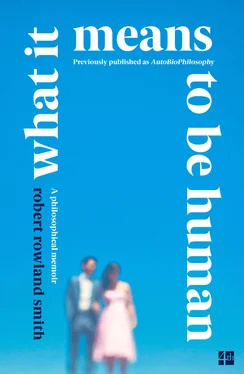
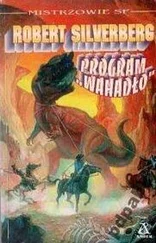


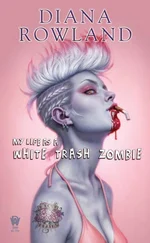




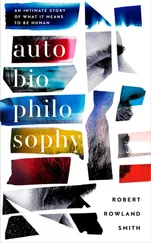

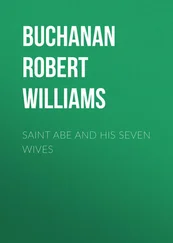
![Helen Rowland - The Widow [To Say Nothing of the Man]](/books/752764/helen-rowland-the-widow-to-say-nothing-of-the-man-thumb.webp)